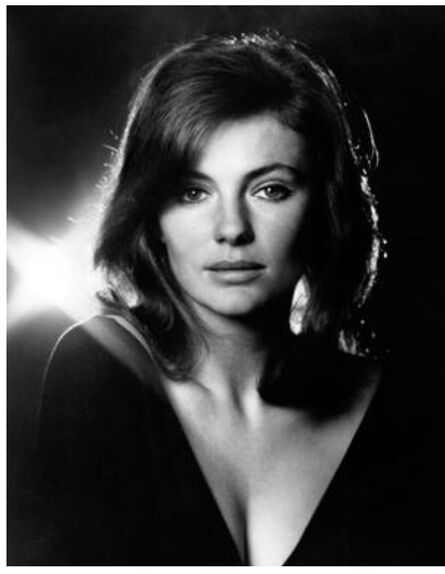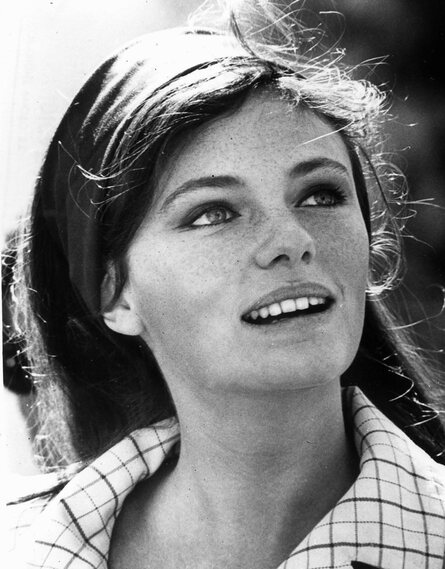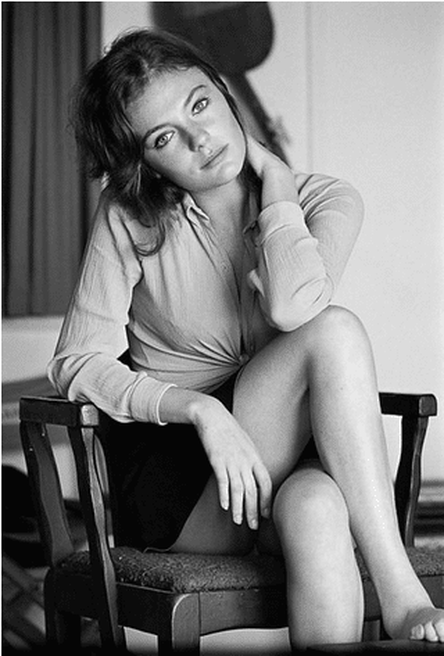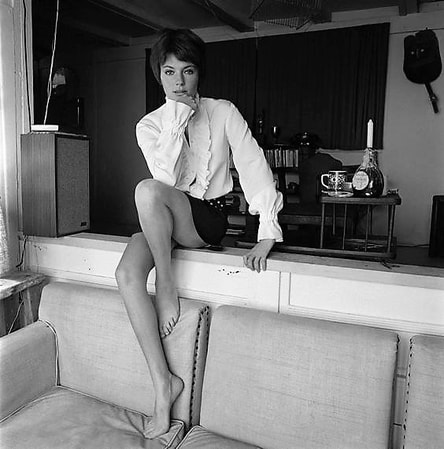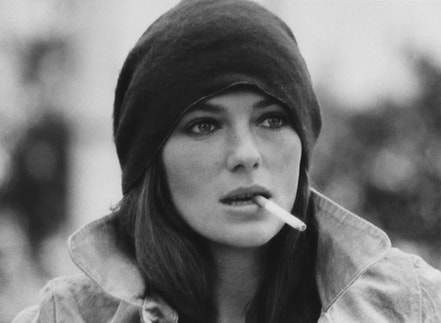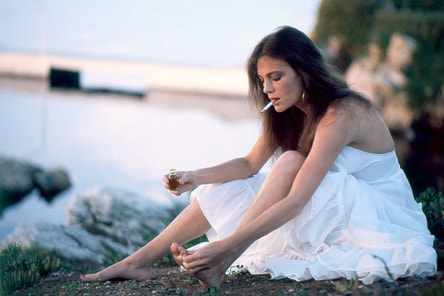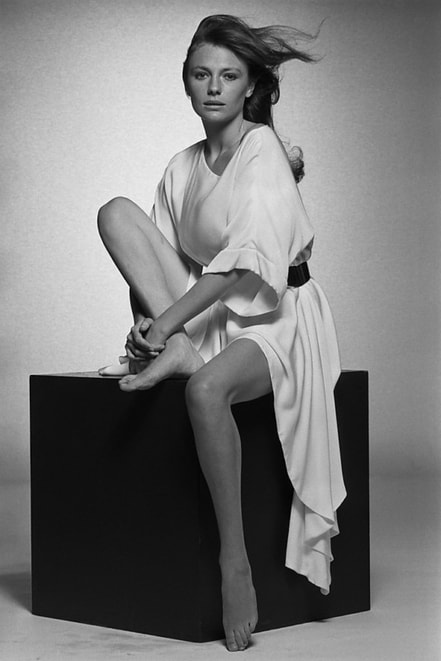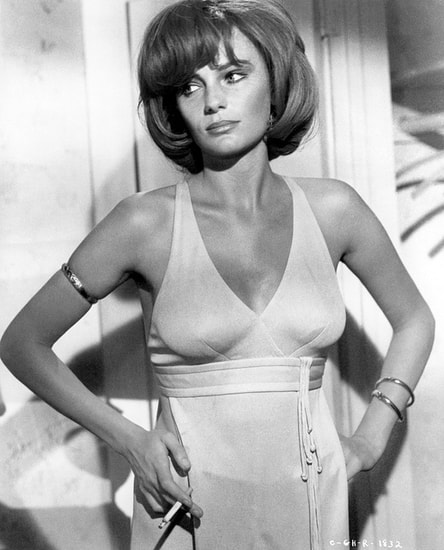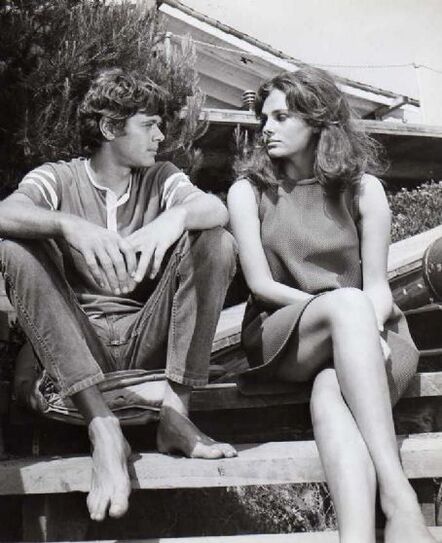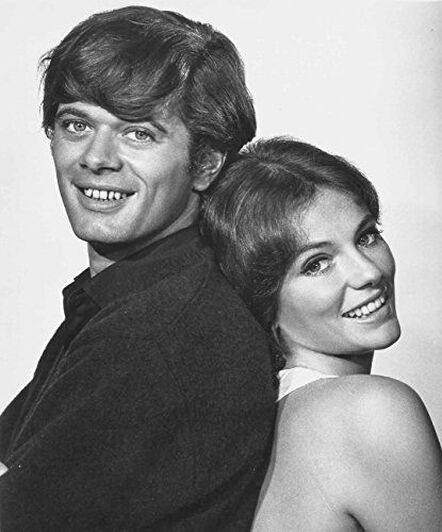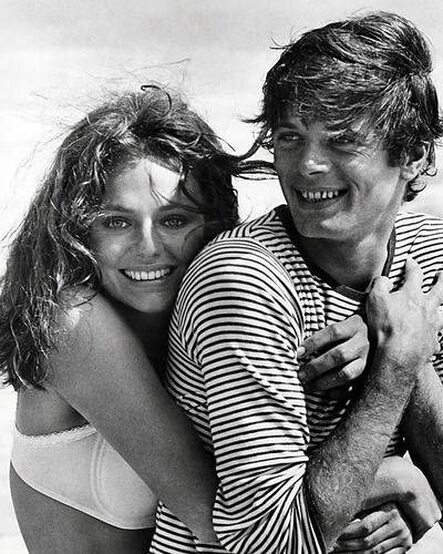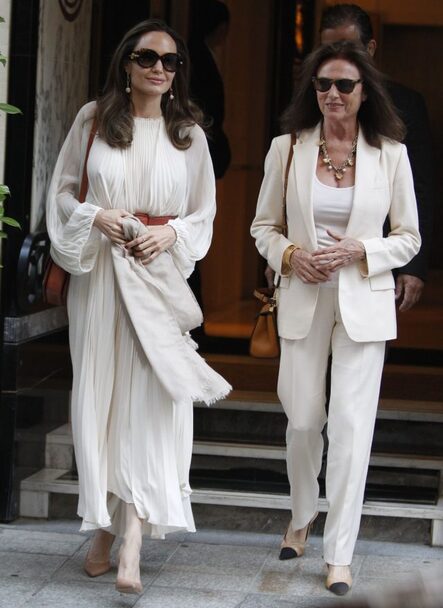|
Winifred Jacqueline Fraser Bisset LdH (born 13 September 1944) is an English actress, and she speaks English, French, and Italian. She began her film career in 1965 and first came to prominence in 1968 with roles in The Detective, Bullitt, and The Sweet Ride, for which she received a Golden Globe nomination as Most Promising Newcomer. In the 1970s, she starred in Day for Night (1973), which won the Academy Award for Best Foreign Language Film, and Who Is Killing the Great Chefs of Europe? (1978), which earned her a Golden Globe nomination as Best Actress – Motion Picture Comedy or Musical. In 2010, she received France's highest honour, the Legion of Honour. In 2013, she won a Golden Globe Award for Best Supporting Actress - Series, Miniseries or Television Film for her performance in BBC miniseries Dancing on the Edge (2013). BiographyJacqueline Bisset was born Winifred Jacqueline Fraser Bisset in the London suburb of Weybridge, Surrey, England, the daughter of George Maxwell Fraser Bisset (1911–1982), a general practitioner, and Arlette Alexander (1914–1999), a lawyer-turned-housewife. Her mother was of French and English descent and her father was of Scottish descent; Bisset's mother cycled from Paris and boarded a British troop transport to escape the Germans during World War II. Bisset grew up in Tilehurst, near Reading, Berkshire, in a 17th-century country cottage, where she now lives part of the year. She has a brother, Max (b. 1942). Her mother taught her to speak French fluently, and she was educated at the Lycée Français Charles de Gaulle in London. She took ballet lessons as a child and began taking acting lessons while working as a fashion model to pay for them. When Bisset was a teenager, her mother was diagnosed with multiple sclerosis. Bisset's parents divorced in 1968, after 28 years of marriage. Bisset first appeared uncredited as a prospective model in The Knack ...and How to Get It (1965), directed by Richard Lester. She made her official debut the following year in Roman Polanski's Cul-de-sac (1966). In 1967, Bisset had her first noticeable part in the Albert Finney/Audrey Hepburn vehicle Two for the Road, as a woman in whom Finney's character is romantically interested. It was made by 20th Century Fox, which put her under contract. She then had a more sizeable role in the James Bond satire Casino Royale, as Miss Goodthighs. Fox cast Bisset in her first lead part in The Cape Town Affair, opposite a then-unknown James Brolin, filmed in South Africa on a low budget. She gained mainstream recognition in 1968, when she replaced Mia Farrow in The Detective opposite Frank Sinatra. The same year, she co-starred with Michael Sarrazin in Fox's The Sweet Ride, which brought her a Golden Globe nomination for Most Promising Newcomer. In 1969, Bisset was top billed in The First Time and Secret World, appearing as a blonde in the latter. In 1970, Bisset was one of the many stars in the disaster film Airport; her role was that of a pregnant stewardess carrying Dean Martin's love child. It was a huge hit. In the film The Life and Times of Judge Roy Bean (1972), she played the daughter of Paul Newman's title character. She played the female lead in The Thief Who Came to Dinner (1973) with Ryan O'Neal, stepping in for a pregnant Charlotte Rampling. Bisset went to France to appear in François Truffaut's Day for Night (1973), earning the respect of European critics and moviegoers as a serious actress. She stayed in France to make Le Magnifique (1973) with Jean-Paul Belmondo, a hit in France but little seen in English-speaking countries. She was one of many stars in Murder on the Orient Express (1974), an enormous success. Bisset went to Germany for End of the Game (1975), co-starring Jon Voight. In Italy, she played opposite Marcello Mastroianni in Luigi Comencini's The Sunday Woman (1975). In 1977, Bisset gained wide publicity in America with The Deep. A marketing strategy based around Bisset appearing in some scenes underwater wearing only a white T-shirt for a top helped make the film a box-office success. At the time, Newsweek declared her "the most beautiful film actress of all time." Shortly thereafter, a UK production, Secrets, that Bisset had made in 1971 was re-released in the United States. That movie featured the only extensive nude scenes of Bisset's career and the producers cashed in on her fame. By 1978, Bisset was a household name. She earned a Golden Globe nomination that year as Best Actress – Motion Picture Comedy for her performance opposite George Segal in Who Is Killing the Great Chefs of Europe?, and starred with Anthony Quinn in The Greek Tycoon, playing a role based on Jackie Onassis. In the early 80s, Bisset appeared in some all-star films such as When Time Ran Out (1980), starring alongside Paul Newman and William Holden, and Inchon (1981), with Laurence Olivier., although Both films were big flops. Her fee around this time was $1 million a movie. In her film Rich and Famous (1981) directed by George Cukor, Bisset also served as co-producer. Bisset received her third Golden Globe nomination for John Huston's Under the Volcano (1984) in the Best Supporting Actress category. In the 80s Bisset also played for television, such as the title role in Anna Karenina (1985), opposite Christopher Reeve, and she portrayed Joséphine de Beauharnais in the miniseries Napoleon and Josephine: A Love Story (1987) with Armand Assante. She also had the lead in some comedies, such as High Season (1987) and Scenes from the Class Struggle in Beverly Hills (1989), taking over for Faye Dunaway due to scheduling conflicts. During the early 1990s, Bisset shot projects on multiple continents, co-starring in Mario Monicelli's Rossini! Rossini! (1991), a biopic of Italian composer Gioachino Rossini; with Martin Sheen for a Paris-based TV movie called The Maid (1991); with Elliott Gould in the Dutch miniseries Hoffman's honger (1993); with Jean-Hugues Anglade in the French language film Les marmottes (1993); and with one of Japan's top stars, Masaya Kato in the Australian TV movie Crimebroker (1993). She returned to North American screens with the TV movie Leave of Absence (1994), opposite Brian Dennehy. In 1995, Bisset was nominated for a César Award for her role in the French film La Cérémonie, directed by Claude Chabrol. She did a couple of period pieces, such as a retired courtesan in 16th-century Venice in Dangerous Beauty (1998) with Catherine McCormack. In 1999, Bisset appeared in two high-caliber television projects, playing the Virgin Mary in Jesus and Isabelle d'Arc in Joan of Arc, earning a Primetime Emmy Award nomination as Best Supporting Actress for the latter performance. Bisset starred in the lead role of Boaz Yakin's Death in Love, which premiered at the 2008 Sundance Film Festival. Her performance as a volatile Holocaust survivor earned her the Best Actress award at the Boston Film Festival. Later that year, she starred in An Old Fashioned Thanksgiving for the Hallmark Channel, and was nominated for a Satellite Award as Best Actress. In 2010, Bisset was awarded the Legion of Honour insignia, with French President Nicolas Sarkozy calling her "a movie icon". Later that year she reprised her role in the sequel to An Old Fashioned Thanksgiving, An Old Fashioned Christmas. In 2012, Bisset returned to the UK to film Stephen Poliakoff's 1930s jazz drama series Dancing on the Edge. For her work, she won the Golden Globe Award for Best Supporting Actress – Series, Miniseries or Television Film. In 2020, Bisset joined the cast of Birds of Paradise from Amazon Studios, shot in Budapest. She plays a title character in Loren & Rose (2021). Bisset has never married, but had long-term romances with French-Canadian actor Michael Sarrazin, Moroccan real estate magnate Victor Drai, Russian dancer/actor Alexander Godunov, Swiss actor Vincent Perez and Turkish martial arts instructor Emin Boztepe.
Bisset is godmother to Angelina Jolie.
0 Comments
Leave a Reply. |
Categories
All
Archives
December 2023
|
